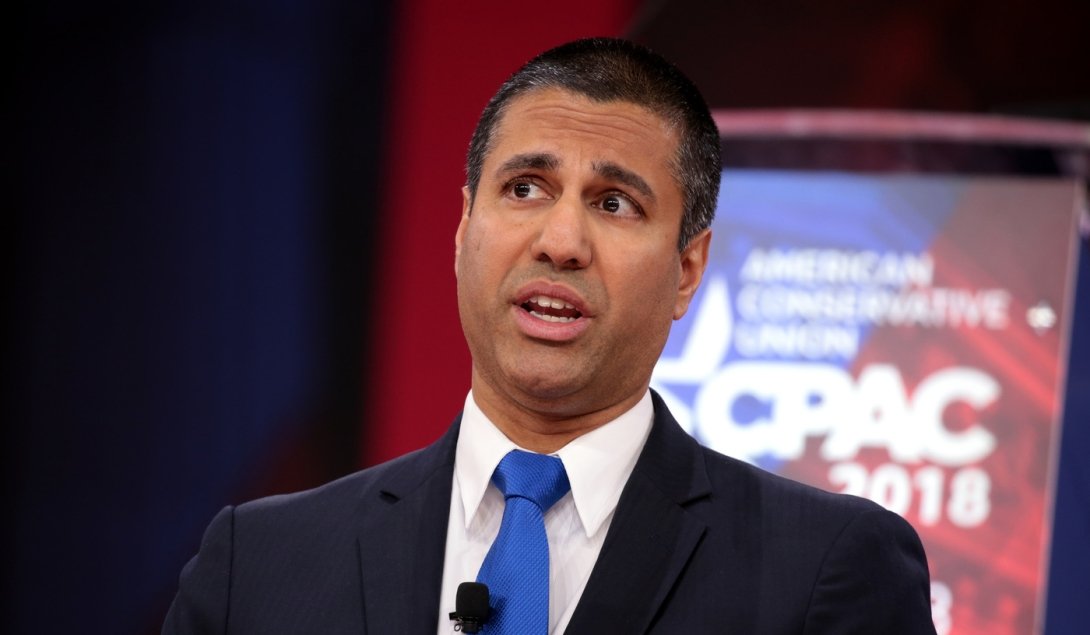Chairman Pai Can't Win for Losing

Original photo by Flickr user Gage Skidmore
FCC Chairman Ajit Pai’s 2017 repeal of the Net Neutrality rules is the worst decision in the agency’s history.
No amount of spin can undo that. But that hasn’t stopped Pai from trying and trying, again and again.
His latest came in the form of a statement, released Wednesday, touting the expiration of a bipartisan congressional effort to restore the Net Neutrality protections.
“I’m pleased that a strong bipartisan majority of the U.S. House of Representatives declined to reinstate heavy-handed internet regulation,” Pai said.
Umm, not quite, Mr. Chairman.
What actually happened was that in May a bipartisan Senate majority voted to reinstate the rules to protect internet users from companies like AT&T, Comcast and Verizon that want to block, throttle or de-prioritize the online content people want to see.
The measure then moved to the House, where it gained support through the summer and fall. By December, 181 members pledged to sign a discharge petition to bring the resolution to a floor vote in the last days of the congressional session.
The GOP leadership refused to allow a vote so we’ll never know whether the measure had the numbers it needed to pass. What we do know is that we’ve never had so many members of Congress signal such strong support for Net Neutrality.
And you can count additional open-internet supporters among the new class of representatives who were sworn in on Thursday.
“[Members of Congress] did the right thing — especially considering the positive results for American consumers since the adoption of the Restoring Internet Freedom Order,” Pai said.
Actually, the right thing for any elected lawmaker would be to heed the will of their constituents.
According to a 2018 University of Maryland poll, 82 percent of Republicans, 90 percent of Democrats and 85 percent of independents opposed Pai’s decision to take away our right to choose where we go, what we do and whom we connect with online. This near-consensus comes through in other polls as well, removing any doubt that people will agree with any politician, regardless of party, who sides with them in support of Net Neutrality.
This was reflected in last November’s election results. More Net Neutrality supporters in Congress is good news for open-internet rights and bad news for Pai, who will face heightened scrutiny from new congressional leaders seeking accountability from Trump appointees.
And the positive results Pai cites, like an increase in fiber deployment and capital expenditures by ISPs, were happening while the Net Neutrality rules were in place. His destruction of these protections had nothing to do with the decisions from AT&T, Comcast and others to continue upgrading networks. Their executives have said as much and the resulting numbers don’t lie.
“In short, the FCC’s light-touch approach is working,” Pai adds.
Perhaps it’s working for Pai and a cabal of phone- and cable-industry lobbyists. It isn’t working for the rest of us.
Pai’s “light touch” ripped up not just the nondiscrimination rights embodied in the Net Neutrality rules, but the entire legal foundation for the FCC to promote broadband deployment, affordability and privacy.
Now all of these things are under threat.
Providers have continued to discriminate against sites and services they don’t own or have special relationships with, even as they try to make it look like they’re honoring Net Neutrality principles until the lawsuit over Pai’s decision is decided. The cost of high-speed internet service in the United States far exceeds prices in most every other developed economy, with no relief in sight for those who can’t afford to get connected. And the FCC now lacks the authority to prevent ISPs from harvesting user data for sale to advertisers and others.
It’s for these reasons and others that we’re suing the FCC before the U.S. Court of Appeals for the D.C. Circuit. We’re challenging its flawed justifications for tossing out the rules and the many procedural fouls that plagued the FCC’s 2017 ruling. Oral arguments are scheduled for Feb. 1.
So sure, Pai can celebrate a hollow victory that he just made up. As members of the incoming House majority noted, Pai doesn’t understand how Congress actually works.
But he’ll soon have to go before that new Congress and the courts to defend his phony rationale for repealing the open-internet protections. And he’ll have to explain why he continues to ignore the millions of people of all political stripes who have called for these safeguards.